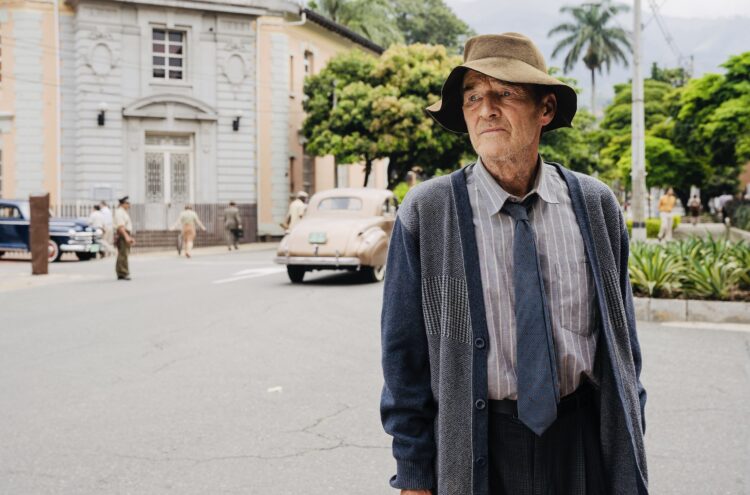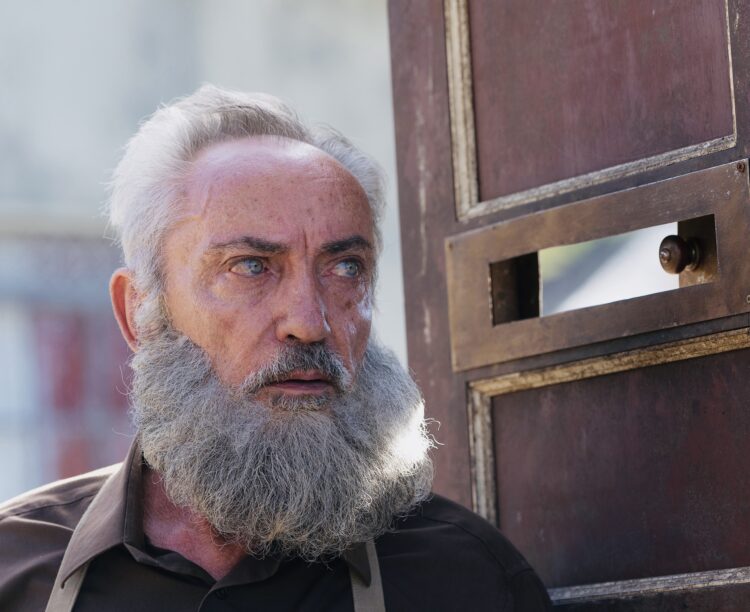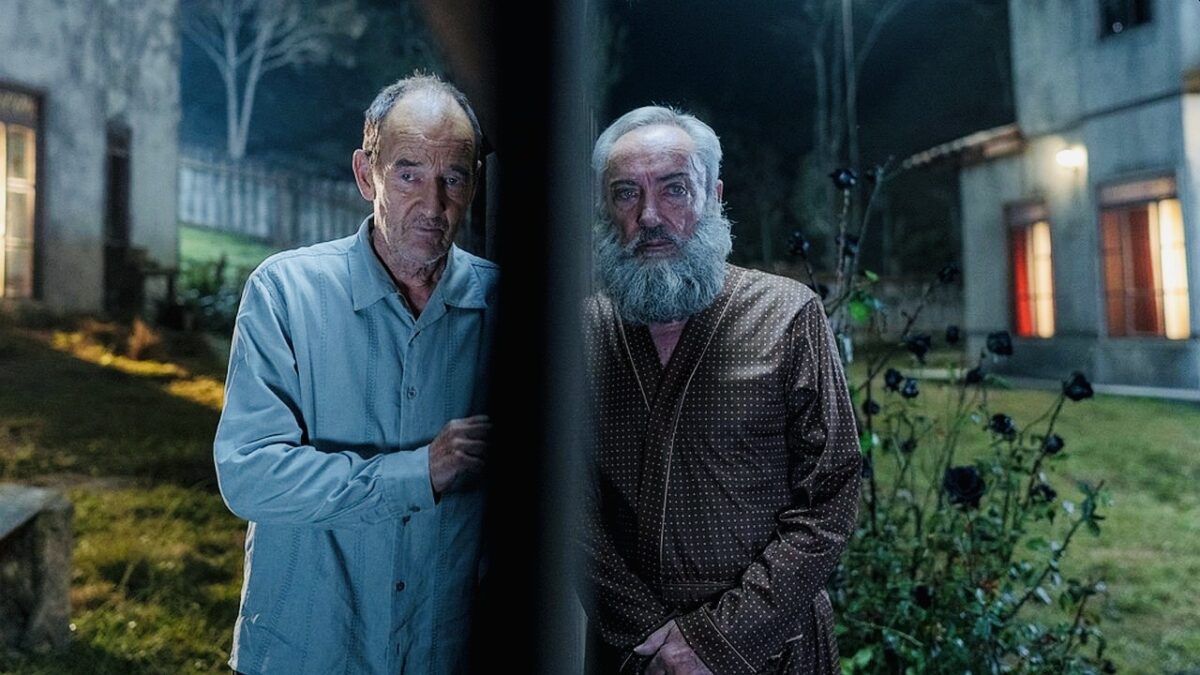Leon Prudovsky’s My Neighbor Adolf, which was screened at this year’s Toronto Jewish Film Festival, is a dark, corrosive comedy on the lingering effects of Nazism and the Holocaust.
It is set mainly in rural Colombia in 1960, the year Nazi war criminal Adolf Eichmann was kidnapped by the Mossad in Buenos Aires and secretly flown to Israel to stand trial.
It begins with a cameo scene in Poland in 1934, when Marek Polsky, a Polish Jew, and his family pose for a photograph. This nostalgic image turns out to be a valuable keepsake long after the murder of his parents and siblings during the Holocaust.
The scene shifts back to Colombia, where Polsky (David Hayman) lives alone on a remote farmstead. Gruff and unsociable to the point of being a misanthrope, he clearly prefers his own company. He barely tolerates the postman who delivers his mail and brushes off a German woman seeking information about the house next to his.

As it happens, the dwelling is bought by Hermann Herzog (Udo Kier), a German who also lacks social graces. In short order, Polsky and Herzog are inexorably drawn into a bitter dispute over dog excrement, land ownership, a fence, and black roses.
These conflicts heighten Polsky’s suspicion that Herzog is actually Adolf Hitler in disguise. He reaches this far-flung conclusion because, like Hitler, Herzog has blue eyes and is left-handed. He is so certain of his supposition that he speaks to an intelligence officer in the Israeli embassy, who seems skeptical.
Keen on investigating Herzog, Polsky buys a bunch of books about Hitler and secretly photographs Herzog, whose lawyer warns Polsky to stop harassing him.
By now, Polsky and Herzog are sworn enemies. But their mutual animosity gradually vanishes under the influence of coffee, vodka and chess, a game to which they are both devoted. Their relationship warms up still further when Herzog paints a portrait of Polsky.

Their apparent rapprochement does not mean that Polsky has abandoned his suspicion that Herzog is Hitler. On the contrary, Polsky rummages through Herzog’s belongings in the hope of finding incriminating evidence against him.
In the meantime, the cantankerous pair continue to match wits in chess games. They also agree that Herzog’s lawyer is sexy.
The film reaches a turning point when Herzog, having observed a Nazi concentration camp tattoo on Polsky’s arm, asks him if he lost his family during the Holocaust and why he didn’t immigrate to Palestine after the war.
Herzog’s comments temporarily soften up Polsky. But soon enough, they’re at each other’s throats again. At this tense juncture, Herzog reveals something crucial about his past. It’s an admission that turns Polsky into a friend rather than a foe.
My Neighbor Adolf unfolds at a pleasant pace, and Hayman and Kier turn in credible performances as the protagonists. This is an unusual film that sardonically charts the lasting effects of the Nazi era and the mass murder of Jews on two radically different people who meet on neutral ground.
